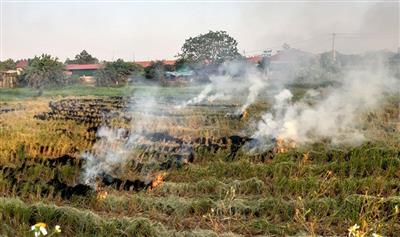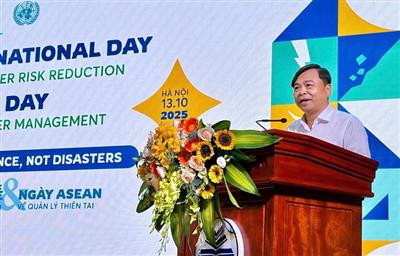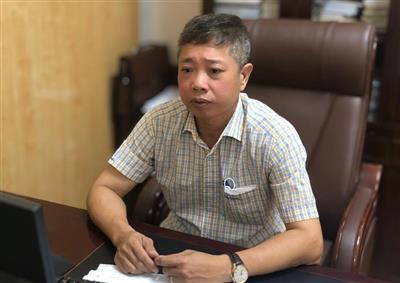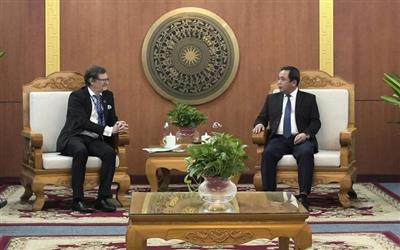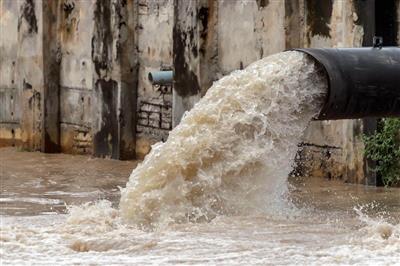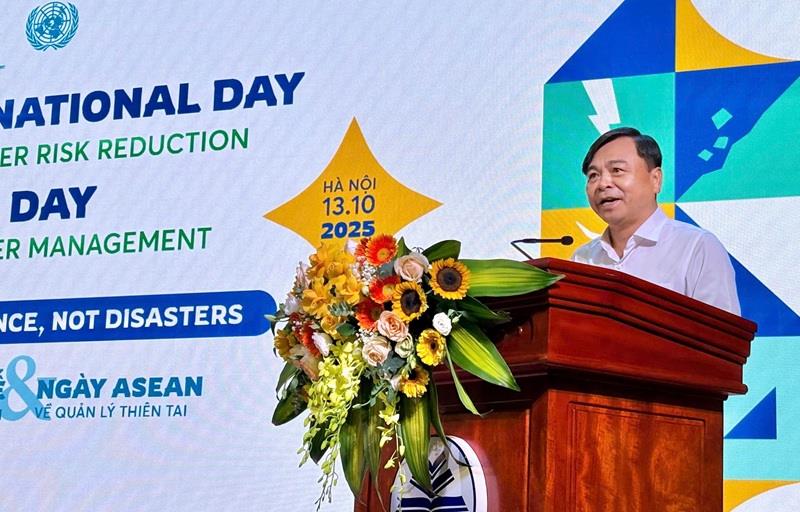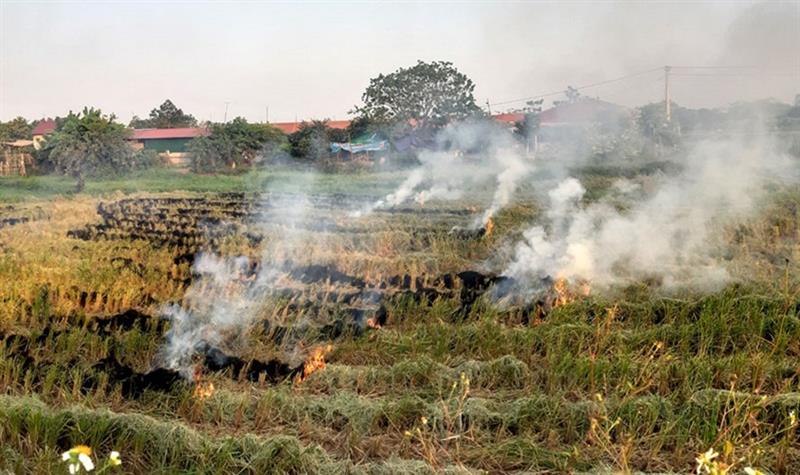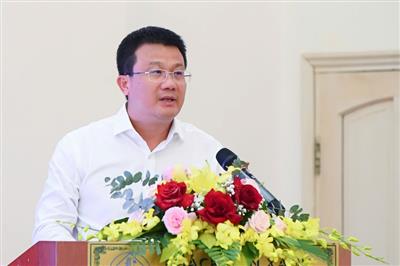
Popularization of the 2024 Land Law for central-level disseminators nationwide
26/07/2024TN&MTOn April 24th in Hanoi, the Party Central Committee's Commission for Popularisation and Education, in collaboration with the Ministry of Natural Resources and Environment, organized a conference on the education and popularization of the 2024 Land Law for national central-level policy disseminators. The conference was co-chaired by Deputy Head of the PCC’s Commission for Communication and Education Phan Xuan Thuy, and Deputy Minister of Natural Resources and Environment Le Minh Ngan.

Conference on propagating the 2024 Land Law for central-level disseminators nationwide
Attendees included leaders from various departments and units under the Party Central Committee's Commission for Popularisation and Education, leaders from departments and units under the Ministry of Natural Resources and Environment, leaders from propaganda committees and advisory departments for oral propaganda from 57 provincial and city Party Committees, central Party Committees, central-level policy instructors, leaders from the central propaganda and training commission of political and social organizations, leaders from the propaganda committees of major corporations such as Vietnam Electricity (EVN), Vietnam Oil and Gas Group (PVN), Vietnam National Coal and Mineral Industries Group (TKV), Vietnam Cement Corporation, and Vietnam Railways Corporation, as well as leaders, officials, and specialists from the Departments of Natural Resources and Environment of various provinces and cities.
The revised 2024 Land Law consists of 16 chapters and 260 articles, amending and supplementing 180 out of 212 articles from the 2013 Land Law and introducing 78 new articles. This law is crucial as it impacts all aspects of the nation's socio-economic life, national defense, security, and environmental protection. It serves as a central component in the legal system concerning land, interrelating with many other legal provisions. The Land Law has fundamentally institutionalized the contents of Resolution No. 18-NQ/TW, reflected through provisions on innovating and improving the quality of land use planning and plans, refining regulations on land allocation, leasing, and land use purpose changes, and improving regulations on compensation, support, resettlement, and land recovery for national defense, security, socio-economic development, and public interest.

Deputy Minister Le Minh Ngan shared new points in the revised Land Law
In his presentation on “Key new points of the revised Land Law,” Deputy Minister Le Minh Ngan detailed the new points across the 16 chapters. The law stipulates the regime of land ownership, the authority and responsibilities of the State as the representative of the owner of the entire population's land, unified land management, land use management and use regimes, and the rights and obligations of citizens and land users concerning the land within the territory of the Socialist Republic of Vietnam. The regulations on land users have been revised and supplemented to align with the Civil Code, Law on Belief and Religion, Nationality Law, and Investment Law, without discrimination between Vietnamese citizens residing domestically or abroad in land access.
The law also inherits land classification from the 2013 Land Law, adding concentrated livestock land to the agricultural land group, and incorporating land for water supply and drainage facilities, disaster prevention facilities, information technology, ash storage, and wholesale markets into the non-agricultural land group. The law refines principles for land use, adding principles for land protection and climate change adaptation, defining the responsibilities of entities allocated land by the State, and encouraging efficient land use, land concentration for large-scale agricultural and forestry production, and infrastructure development to increase land value. It strictly prohibits violations of land policies concerning ethnic minorities and gender discrimination in land management and use.

Deputy Minister Le Minh Ngan delivered a speech at the conference
Notably, Chapter VIII on land development, management, and exploitation (comprising Articles 112 to 115) is entirely new compared to the 2013 Land Law. The chapter mandates that land development, management, and exploitation must adhere to land use plans, use land for the right purposes, and ensure transparency, rationality, efficiency, and legal compliance. It also addresses the needs of socio-economic development, resettlement support, social security, and land allocation for ethnic minorities. The chapter specifies the sources for land fund formation and establishes organizations for land fund development at local levels, managed and exploited by provincial-level People's Committees. Local People's Committees are responsible for coordinating with land fund development organizations to manage and protect land, preventing encroachment and illegal occupation.
To address conflicts and overlaps between laws and ensure consistency within the legal system, the Land Law dedicates a section of Chapter 16 to amending and supplementing provisions of eight related laws, including the Planning Law, Investment Law, Forestry Law, Fisheries Law, Law on the Organization of Local Government, Law on Civil Judgment Enforcement, Personal Income Tax Law, and Law on Non-agricultural Land Use Tax.

Deputy Head of the PCC’s Commission for Communication and Education Phan Xuan Thuy
Additionally, the law abolishes one National Assembly resolution related to the Land Law (Resolution No. 132/2020/QH14 on piloting some policies to resolve issues in the management and use of land for national defense and security combined with production and economic development activities). It also adds eight transitional provisions on land use planning, land allocation, leasing, land use purpose changes, land registration, land certification, land finance, land prices, and land use duration to address household land use rights and other transitional cases when the law takes effect.
The 2024 Land Law will officially come into effect on January 1, 2025. However, Articles 190 on marine encroachment activities and 248 on amending and supplementing certain provisions of the Forestry Law will take effect earlier, on April 1, 2024. Land use planning and approval will continue under Resolution 61/2022/QH15, which enhances the effectiveness of policies and laws on planning and provides solutions to difficulties, speeding up the progress and improving the quality of planning for the 2021-2030 period. Clause 9 of Article 60 of the 2024 Land Law will take effect from the expiration date of Resolution 61/2022/QH15.

The 2024 Land Law resolves the issues identified during the review of the 2013 Land Law implementation. Following its adoption by the National Assembly, the government is currently focusing on completing detailed regulations and guidelines to ensure the law's smooth implementation, maintaining consistency and uniformity within the land law system.
According to Deputy Minister Le Minh Ngan, provincial People's Councils are responsible for issuing local policies on land for ethnic minorities, appropriate to local conditions, and setting criteria for selecting investors for land use projects. They must also decide on initial land price tables to be announced and applied from January 1, 2026, along with adjustments and amendments to land prices to be announced and applied from January 1 of subsequent years.
Deputy Minister Ngan urged local governments to direct provincial/city advisory bodies to immediately begin developing these policies, ensuring they align with the law and its subordinate regulations upon their effectiveness. A comprehensive land law system will contribute to the economical, efficient, and sustainable use of land resources in the new period, aiming to maximize land resource potential to meet socio-economic development needs.
Deputy Head of the PCC’s Commission for Communication and Education Phan Xuan Thuy requested provincial, city, and central Party Committees, the Central Committee of the Vietnam Fatherland Front, and central political and social organizations to use the information and materials provided by the Ministry of Natural Resources and Environment to educate cadres, party members, and the public about the revised Land Law. Key issues to focus on include land ownership by the entire population with the State as the representative owner and unified manager, the rights and obligations of the State as the representative owner as prescribed by the Constitution and law, and the rights and obligations of organizations, households, and individuals granted land use rights by the State. Land, as a significant resource, must be managed and used effectively and sustainably, ensuring social equity, and preventing degradation, destruction, waste, corruption, and negative impacts. This will foster social consensus on implementing the Land Law in the coming period.
Mr. Phan Xuan Thuy also urged provincial/city propaganda committees to collaborate with provincial/city Departments of Natural Resources and Environment to effectively organize educational conferences on the 2024 Land Law immediately after the conference. They should also continue to publicize the results of the first months of 2024, implementing the government's solutions, directives, and resolutions to achieve the highest possible socio-economic development goals for 2024.
Ngoc Huyen (NRE Newspaper)




